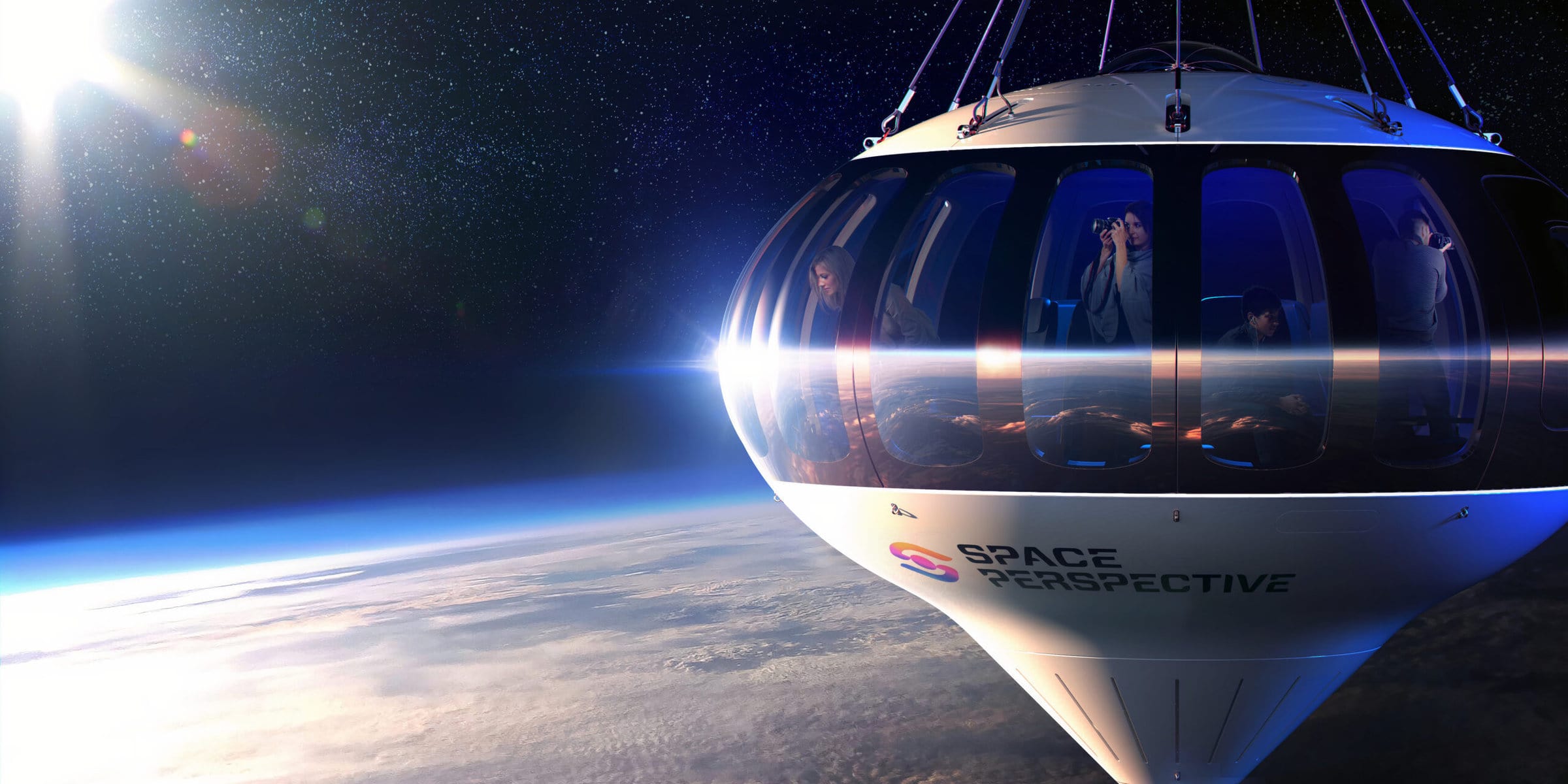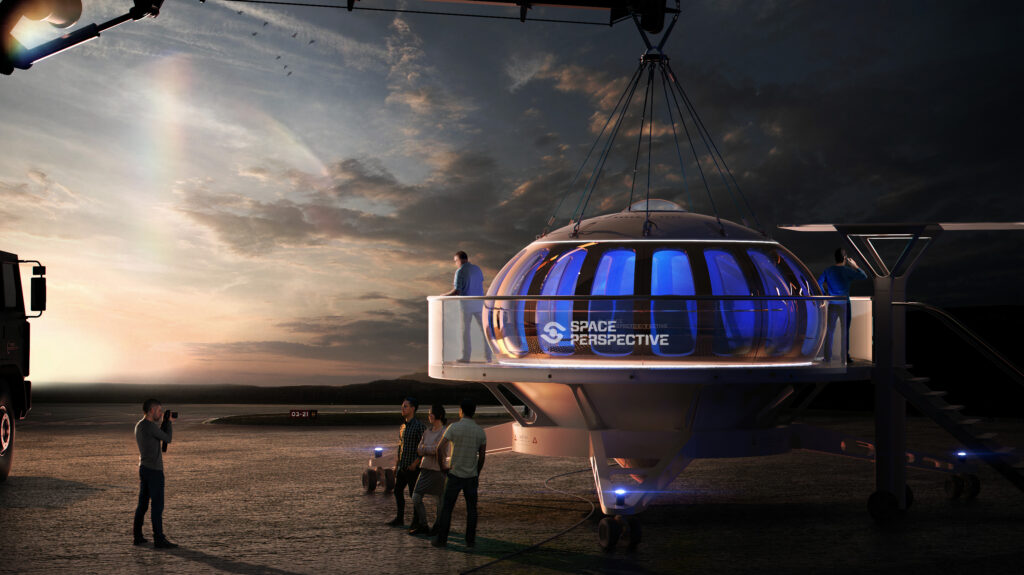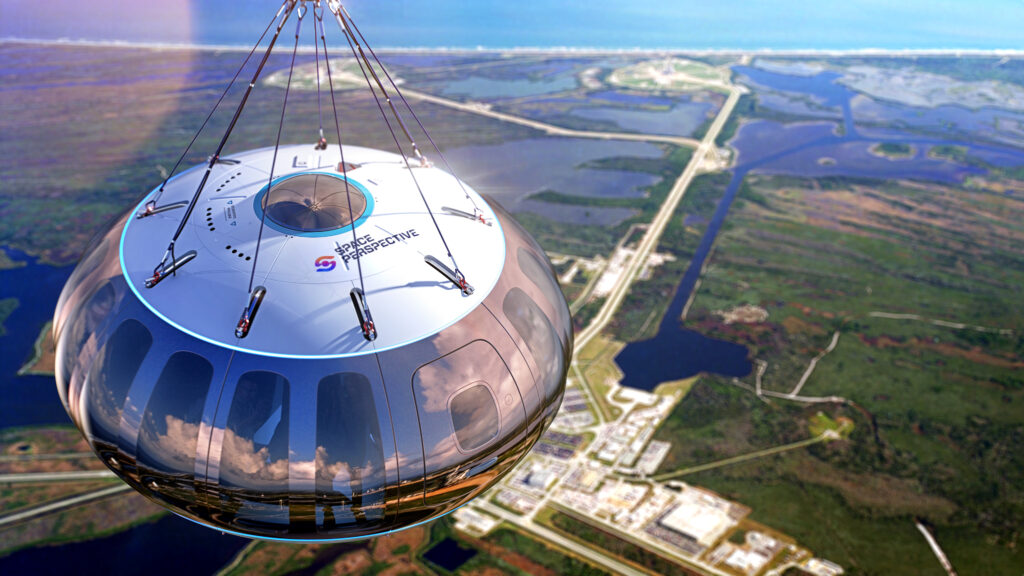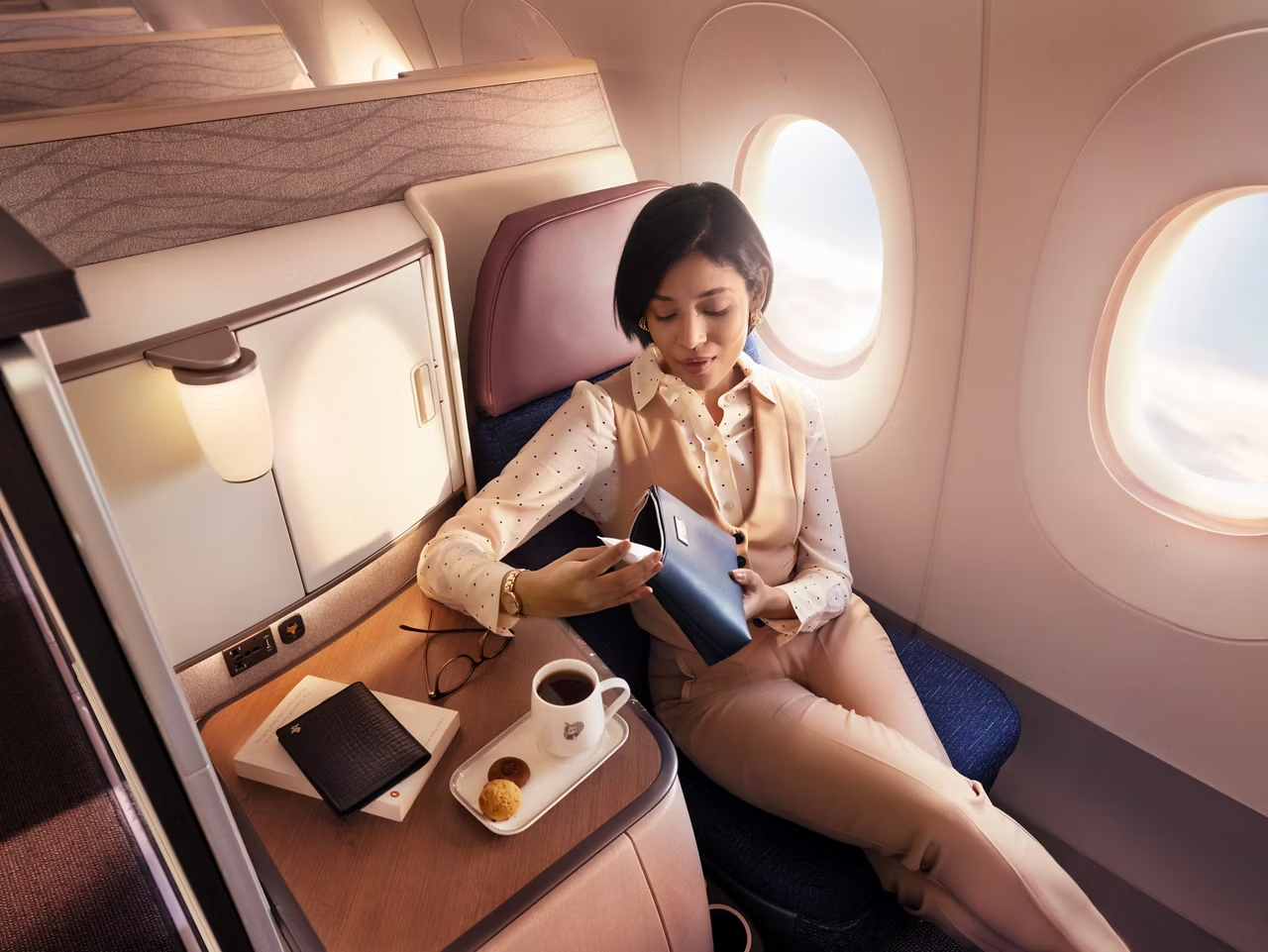Jane Poynter, Founder of Space Perspective, is Revolutionizing Space Tourism
The company offers a luxury suborbital experience—complete with champagne
May 13, 2022

“People have been ready to go to space all along,” says Jane Poynter. “We just weren’t ready to take them.” The aerospace innovator wants to change that with her company, Space Perspective, which aims to send tourists suborbital on a luxury flight experience by late 2024.
Departing from Space Coast Spaceport adjacent to Kennedy Space Center in Titusville, Florida, the six-hour voyage takes up to eight passengers beyond the thin blue line in a pressurized capsule, propelled gently and slowly at 12 miles per hour by a “space balloon,” a high-tech version of a hot-air balloon. The tour of the biosphere through panoramic windows lasts about two hours.
Watch our interview with Jane Poynter on ReachTV’s The Business Traveler TV Show
Poynter says the company envisions longer flights in the future in the zero-emissions, carbon-neutral spacecraft. “We’re at the very beginning of this industry. We don’t know the impact it’s going to have. Think back to aviation or computers. People could not have imagined how they would impact our lives, and the same is going to be true of space travel.”
What makes the ride so smooth is the absence of rocket propulsion or G-force. Think first class all the way with reclining seats, champagne and onboard lavatory facilities. Space can become a place where people will get married, celebrate milestones or entertain special clients—courtesy of routine accessible flights.
Space Perspective is only the latest accomplishment on Poynter’s résumé. A technical advisor to Elon Musk before he founded SpaceX, she holds a patent for the world’s first self-sustaining habitat used in many space programs, and bred the first animals to complete multiple life cycles in space.

“Thirty years ago, when I mentioned the words ‘space tourism’ to people, they literally thought I was coming from Mars,” Poynter says. “Only eight private citizens went to space in the first 10 years of this millennium, and they all went on a government vehicle, having spent tens of millions of dollars.” That number has slowly increased, but she says it is about to boom.
The market could grow up to $700 billion by 2031. High-profile companies such as Jeff Bezos’ Blue Origin, Musk’s SpaceX and Richard Branson’s Virgin Galactic have amplified the conversation, but Space Perspective’s experience requires far less preparation and its physical demands are minimal.
“This is an inherently safe vehicle,” she says. “The Space-Balloon has been successfully flown by NASA and others thousands of times, as has the capsule. We go up under the balloon, and we come back down with the balloon. We have a very simple system. There are no moments of free fall.”
The cost of a ride? $125,000. To date, more than 600 tickets have already been sold.

Going to space is the culmination of a dream for the little girl who grew up on the shores of Southern England. “I was one of those kids who would hide under the blankets at night reading Isaac Asimov,” she says. “I just loved the imagination, the innovation, the positive narrative about the future. It did not occur to me that I could actually get significantly involved in space.”
That changed when she spent a year at sea on a research vessel, where she met her husband and business partner, Taber MacCallum, now co-CEO and chief technology officer of Space Perspective. The voyage led to the landmark project Biosphere 2 in the 1990s. As a crew member, Poynter spent two years inside the materially sealed ecological system, where she created an analytical laboratory that monitored the air, water and soil.
“It was a laboratory for understanding planet Earth,” she says. “And it really opened my eyes to how extraordinarily powerful the notion of taking people to space can be. Ever since then, that’s what I wanted to do.” After Biosphere, Poynter and MacCallum co-founded the Paragon Space Development Corporation, pioneering the life-support systems and thermal-control products for extreme environments that are used on the International Space Station and by NASA, major aerospace companies and the U.S. military.
When she started, Poynter says, “I was the only woman in the room. Now, happily, that is not the case. About 25 percent of the workforce is female. We get a lot of diversity of thought, which is important for innovation, for creativity.
“The Apollo program inspired at least one generation of kids to get into science and technology,” she continues. “Humans are generally limited by our imagination. Space Perspective’s mission is to take more people than ever to space, so they can have that experience astronauts have. It changes people.”




